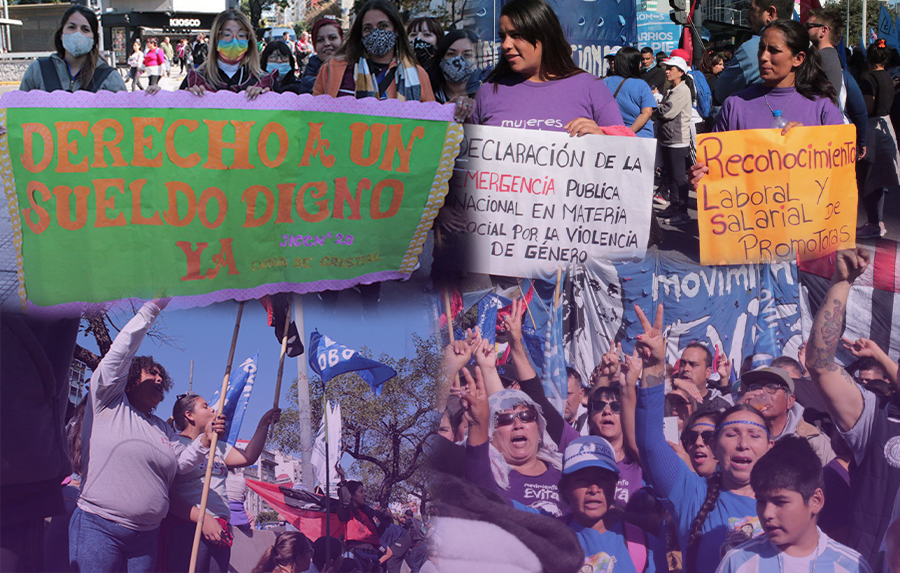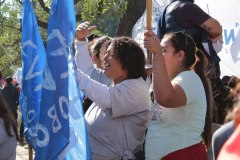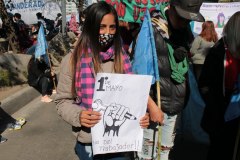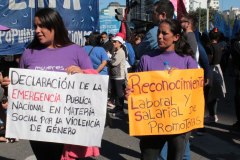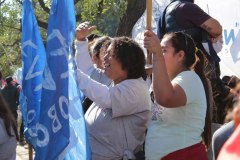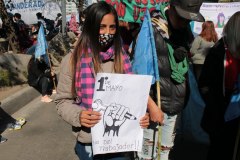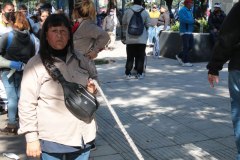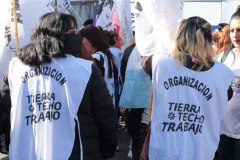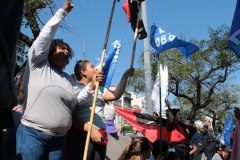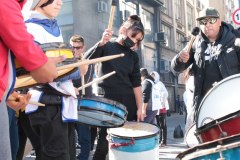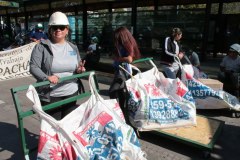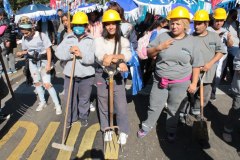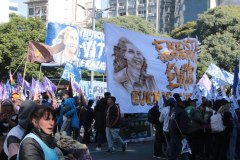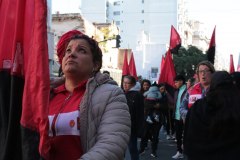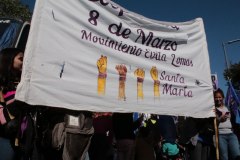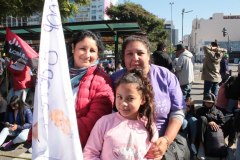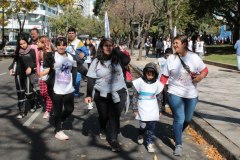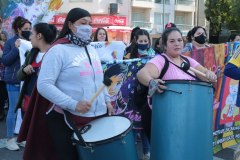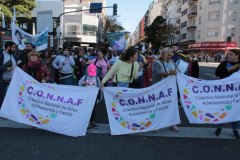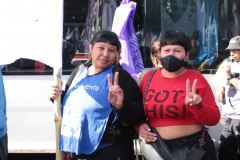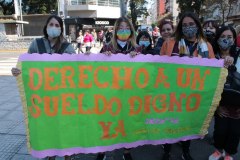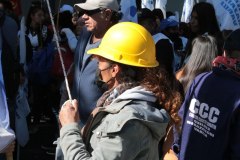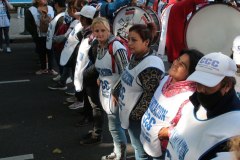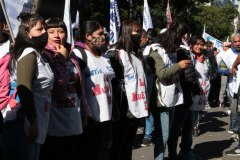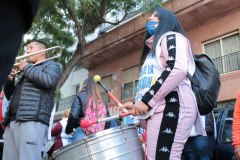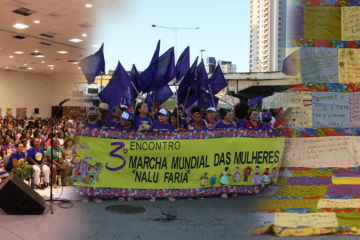This May 1, 2022, International Workers’ Day, Capire launches our first photo coverage. We walked along the same streets where thousands of women have marched in recent years for legal, safe, and free abortion, and where before that people had marched in struggle against free trade and debt, for regional integration, memory, truth, and justice, against repression and for democracy, workers’ rights, common goods, and people’s sovereignty. This May 1, we took part in the Workers’ March in Buenos Aires, Argentina, taking to streets that are marked by resistance as well as grassroots feminist victories.
We share below photos that show the radical character, the organization, and the major role played by women in labor union movements during the demonstration. We also publish stories by women activists who attended the rally, in which they talk about the challenges facing the labor world today and the tasks of feminism in social change. The demonstration closed the 3th Continental Assembly of ALBA Movements. We will continue to publish content from our coverage of the assembly throughout May.
We’ve had important advances in grassroots feminism. Understanding the diversity of women’s movements and the discussions around feminism is very important, as well as having a common understanding of what feminism is today in Latin America, and how necessary it is to have feminism as part of different struggles, across them. Only by building feminism we can build a just socialism. The struggles against capitalism and imperialism are necessarily the struggles against patriarchy.
Messilene da Silva, Landless Workers’ Movement (Movimento dos Trabalhadores Rurais Sem Terra—MST), Brazil.
We have been building the labor union movement for more than ten years with the Union of Workers of Grassroots Economy [Unión de Trabajadores y Trabajadoras de la Economía Popular—UTEP], this tool of class unity. The union movement in Argentina has a really strong history. On this journey of union movement-building, we have also matured the institutional limits of our democracy and our state in terms of integrating grassroots economies. Today, in 2022, we can say that the grassroots economy in the textile industry has exceeded the market economy in terms of production and income levels. Regarding institutions, we still do not enjoy the equal rights we aim to achieve. In the process of collective growth, we have found that we, as workers in grassroots economy, can be antibodies fighting the neoliberal model, because we can work without bosses.
Patricia Cubria, Evita Movement, Argentina
This May 1, I believe we will make our voices heard and we will demand decent wages, which most of us do not get. We are feminists because we stand up for our rights as women in all its forms. When education first started, men were the ones in charge of it, but it was later delegated to women, because they saw the role [of care]… This activity then started to be delegated to women because education was seen as part of care activities in institutions, children would come to be cared for. But actually children come to educate themselves, to learn several things that are not just about mandatory care: we teachers are not mothers. Maybe we are outside office hours, but not in education institutions, where we teach like any other adult, any man or woman who performs this activity.
Adriana Aldrete, of the Federation of Community Kindergartens of La Matanza and National Childhood, Adolescence, and Family Collective (Colectivo Nacional de Niñez, Adolescencia y Familia—CONNAF).
We can also work, we struggle every day, side by side with men, we have the same responsibilities as men, even though they often are not recognized. We are a cooperative with groups of women working in construction, textile groups, confectionery, who produce crafts for fairs, and we are also militants. In the past, most people would only see men comrades in cooperatives. The cooperative has really brought women together. We have many girls who have suffered gender violence. I did too. But then we began to unite and seek resources and establish women’s groups.
Sara Gallardo, of the Lomas de Zamora March 8 Cooperative.

